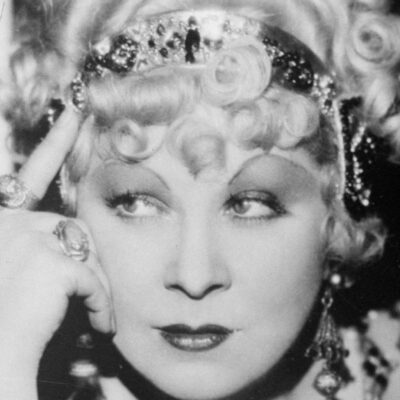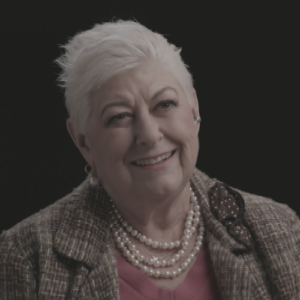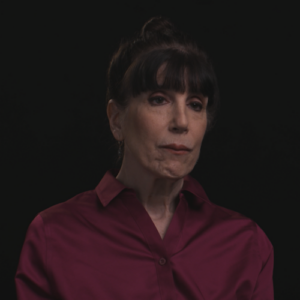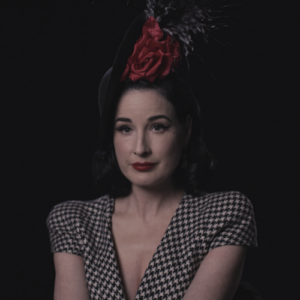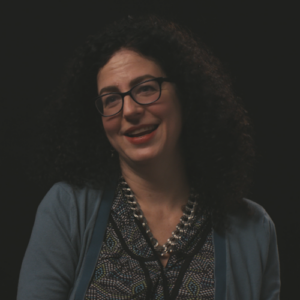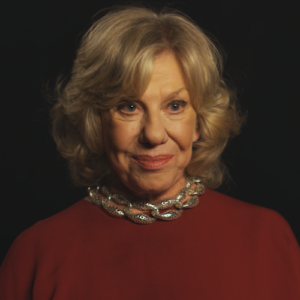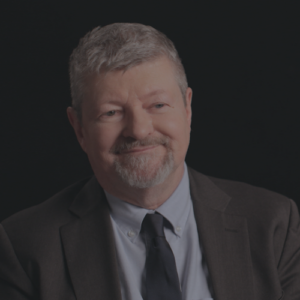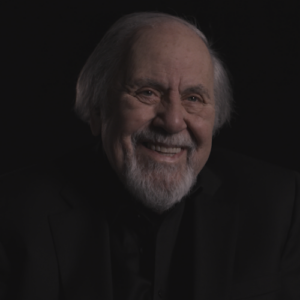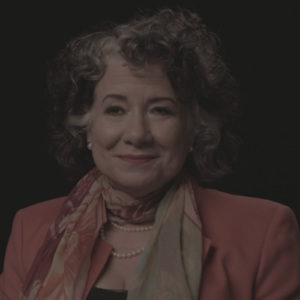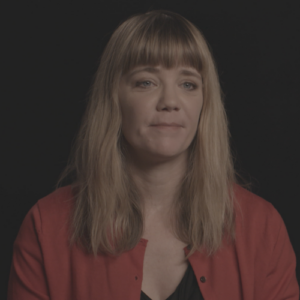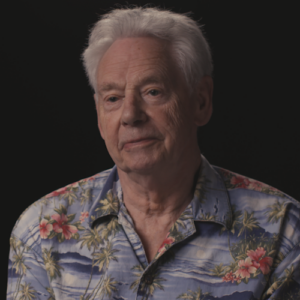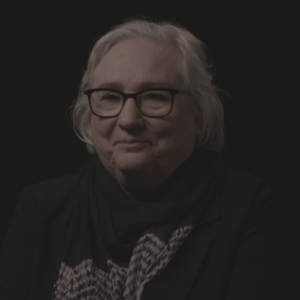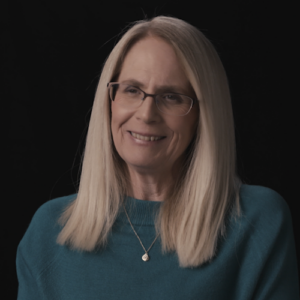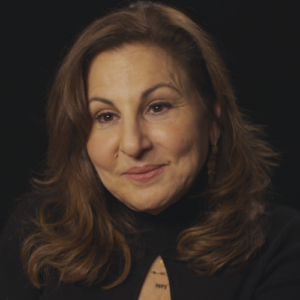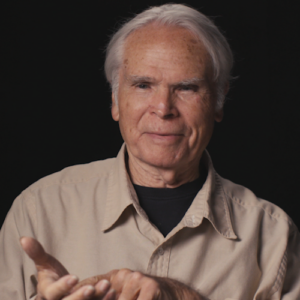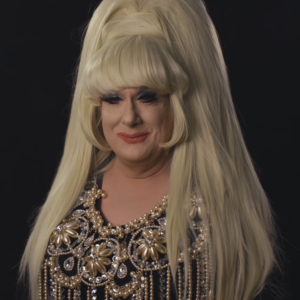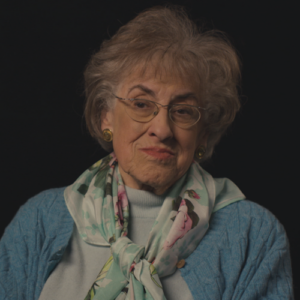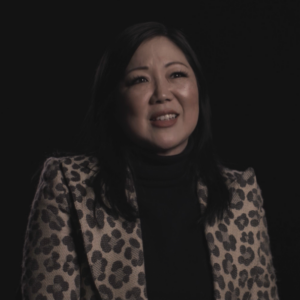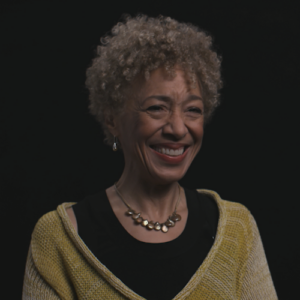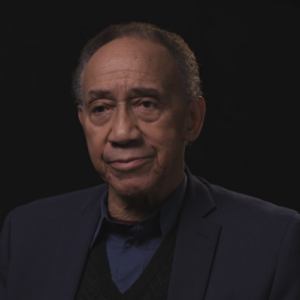André Leon Talley: I first became aware of aware of Mae West on probably some old 11:00 late night movie channel series when I can’t remember the year. I can’t really remember. But I would think that I really became very much conscious of her genius through Turner Classic Movies, because at some point in the past they would have so many Mae West movies that I probably saw all of them on. You know, that black and white channel, that movie channel. And that’s how I became aware of Mae West. And then, of course, when I was young, I was very much aware of Mae West when she did the movie six two. And I had a friend who had worked at Interview magazine when Andy Warhol. His name was Peter Lester, and he had worked for People magazine as a freelancer, and he’d gone out to interview Mae West in California in her last apartment, and he was constantly telling me stories about her, about the furniture covered in plastic, the beautiful clothes with plastic limbs, so that they wouldn’t get dirty on the floor like long coats. The gowns had, you know, those plastic protections like three atoms of plastic around victims. And it just seemed she was a very I was interested in her because I thought she was marvelous. What really struck me about Mae West was she in some ways was an advocate of diversity. Back in the day, her first film with what she did in wrong year was that 33, 1933, Mae West, once an advocate in Hollywood, she always included black women in her films. Of course, they were maids, but they were not just having her cup of tea or coffee or because they were her friends. She included them in the casting because they were integral to the story. So when she has someone as a maid or several maids, what is she? The circus lady who puts the head in alliance with the goal was that film.
Interviewer: “I’m No Angel.”
André Leon Talley: “I’m No Angel.” She’s got three or four maids and her friends, they’re not just working and employed in the film, but she’s actually included them in the movie and they have been cast as her friends. They are her maids, but they have friends. They are aligned to her sexual prowess. They exchange ideas about their boyfriends. And so this is a very integral part. And this is what I really thought about Mae West, because I loved it. And she done it wrong, how she talked to the maids. But they were her friends. They were not just maids running around handing her a cup of coffee. And I thought that was very important. And I realized that after seeing Mae West for so long in the films that I read somewhere, maybe in a long time to review that she was very much included those maids, because they it was like a subtle moment of civil rights there. That was the civil rights movement in 1933. And her first movie she’d done in Wrong.
Interviewer: And they also they refer to their own lives. They’re not only talking about her.
André Leon Talley: No, no. They have lives. They have boyfriends and husbands. And they’re happy. And they’re not just subservient to her. They have lines more than one line. And they are talking and exchanging. And there’s a repartee between her and her mates. They are her friends, you know, in her world and in her environment when she’s got this overt gilded Edwardian environment and she does it wrong when she goes up to that fabulous room above the bar, the Irish bar or dance hall there, she retires and retreats into the Splendor. But she’s always got a bevy of black maids. That was never I never saw a movie it would be worth with a quite maid. But they are black maids. And I think that she understood the humor of black people, should understood the power and the resiliency of black people, black women. And she really included that in her films when she said, I’m no angel. And she’s she’s exchanging the clothes she’s had in her clothes, my wardrobe, in her dressing room. But there’s something about ordering the shoes and something about exchange. She trusts these these women, these black women. And unfortunately, I apologize. I’m very apologetic about this. I can’t remember the names of the fabulous maids, but I remember what they said and what they did in the movies. When she does a dance and I’m no angel, she’s trying the wedding dress and they’re having a wonderful time. It’s like a private party. It’s like a girl’s party. That was the most unusual at the time because, you know, black people in 1930s, in the thirties were not considered equals. And if you saw a black person in a film, they were maids. They were portrayed as stupid. They were portrayed as not intelligent. They were afraid. They were stereotypes. It was simply stereotypical. It was a stereotypical moment for black people in the films. And usually if they were maids, they were just handing coats or opening the doors. And that was not with me. Wanted, I assume, because she had these people in all of her films and they were always very integral to her narrative, to her world. They were in her private world. They shared when they came into the room, they stayed in the room, you know, and they were allowed to give their opinions. And I’m sure Mae West insisted on that, You know, I’m sure she insisted on that in her. Was she born in Brooklyn or Queens? I think she was born in Brooklyn. And she must’ve grown up in a neighborhood full of diversity, I would assume. I don’t know. And I’m sure that that was a part of her upbringing. You know, I’m not sure that she came from a gilded upbringing, but I don’t know much about upbringing. But I know that she was born in Brooklyn and she was a very talented woman. I think she’d written her first book. Sex was the name of the book, The novel, The Sex. She wrote a book about sex, wasn’t it? Yeah.
Interviewer: Babe. Gordon.
André Leon Talley: Oh, babe. God. That was the name of Babe Gordon. And that was a very big pioneering thing for her to do. And she was very way ahead of her time. She was very much ahead of time. I mean, today you can think about the girls who are of the women who are important in the popular culture. Mae West was a pioneer for all those wonderful women who dare to be sexy. Cher dares to be provocative in her dress. Mae West, Pioneer for Cher, Madonna, Rihanna, Beyonce. They can all look back and get something for Mae West. And I do think it’s important that you speak about me with because she was an intelligent actress. She was very much intelligent. And she had problems, I think, with the board of what it was called AIDS. Hays yesterday’s committee. And I think she fought against those kinds of stereotyped stereotypes and those kinds of prejudices. And I don’t think she probably had a good time in Hollywood in the beginning, but she was a star, as she showed brightly as in her first film. She so vividly she just had the gestures that were just so subtle. It wasn’t sometimes when she said it’s the way she looked at someone, those eyes and the words. Did she write the screenplay for…
Interviewer: She did. She wrote at least she wrote her own dialog.
André Leon Talley: She wrote all the dialog. So this is what’s so great because she – who could come up with a dialog in Hollywood other than Mae West and with the diamonds of my career, you know, in her first film, Diamonds is my career. If you go away with nothing else, you go with the diamonds on my career. In other words, I got diamonds on. And it’s the career. I mean, the puns and the sophistication of her. Mine was very modern, very ahead of its time sexually. She was probably very ahead of her time and even carried through in the end with movies like Sex Tape when she sextet when she wasn’t. Exactly. A spring chicken. She still sort of had that attitude and that marvelous way of talking and walking. The gestures, the way she moved, even in her first film, the way she moved across the stage. She’s sexy. She’s doing a swish. She’s doing a sashay. But it’s original because it’s very forward thinking. She’s sort of pushing her body like a thoroughbred horse or something. She’s twisting in and shimmering around in these outfits and the hair and his shoulders. And it’s all about attitude. I think.
Interviewer: That’s great. That’s wonderful. I want to go back for a second. You mentioned the book that she wrote. Are you familiar with that at all, The Crosby Center?
André Leon Talley: I think I think I had the books, so I don’t remember anything about it. But I know I read the book at one point and I bought the book at Strand and I read the book, but I can’t remember anything about it, though. Know that it was me with a book. That’s why I bought it. But, you know, I, I really had a great affinity to the Mae West movies because I was living in Paris and I used to go down to Monte Carlo to work with Helmut Newton, a great photographer, and Helmut Newton was a marvelous man. And he all of his pictures just exuded sex overtones and undertones of sexuality. So Helmut and I were friends, and his wife, Julia, she was a photographer. They had a beautiful apartment, a very modern apartment. So we’d go to dinner, and then I suddenly had these films of me where suddenly I had the those things, not the DVDs, those what do you call videos? Videos of the, you know, the thick, thick things you put in the machine VHS archive. And I would take them and after dinner we would look at these Mae West movies and we just would sit. I remember when we looked at shooting wrong, we were laughing and we were screaming. We’re saying, Look at how wonderful she walks. So I’m sure that that influenced a lot of our work that we did together. We collaborated because it was Mae West, and they weren’t aware of Big West at the time. I think that’s in the late like nineties, early nineties, mid nineties. And it was just a discovery to see Mae West. It was so exciting and she was vital and she had a sense of humor because there was always something behind her dialog. There was always a subtle entendre, you know, upon it was just quite, quite alluring and fascinating.
Interviewer: And the walk, that sort of power walk, that’s very much to her.
André Leon Talley: The power walk was the original and most most incredible, the way she walked across the stage. It was an Edwardian hat, I mean, a portrait hat that was so big with plumes. And then she was sort of a throwback to the Edwardian elegance of Europe. England, particularly. The clothes were very, very attenuated. Yet they were not vulgar. Yet she was sexy when she was not supposed to be sexy at the time. And then the way she walked, the way she carried a walking stick, the way she sauntered and sashayed. And I kind of remember maybe I have what’s a glimpse of a shoe? She stepped out of a carriage and you realize that she may have been on a very high, high platform shoe. And so therefore, she was almost like an acrobat because she had to wiggle her way in those gowns that were very tight fitting and very over the top. And she had to exude a kind of femininity that was not seen at the time when those films were made. Women were not seen as these feminine power, power people. I mean, sexuality was her power. That’s why she was in power. So she just went all out and switched. And I was and and she make gestures and she just do utterances. And just to let you know that she’s on top of that moment with Cary Grant, you can be had with the wonderful line. Any time now. You know she’s got it. She’s got the moment when that category is going to cave in and she knows it because she knows how fabulously powerful she is through her sexuality. And that was a very powerful thing. And I think that it’s a long line and a sense of humor in the Midwest. The Midwest with W.C. Fields, with the Go to the Bad is one of the most hilarious things I’ve ever seen. I mean, just there she is with Edwardian hats and bonnets and plumes and feathers and in a westerly environment. But she still manages to be sexy with these barstools and these high hourglass fitted jackets and gowns. She’s always sexy. She’s always sexy and sexy with a sense of humor. It’s not threatening. She’s not threatening.
Interviewer: To go when you go to bed. Like, here, let him do this.
André Leon Talley: Yes, yes, yes, yes, yes, yes. And W.C. Fields never had a better moment in his life with Mae West. It was extraordinary. Extraordinary. I think that I love I’m no angel. I loved the way she threw the water on the lady’s back in her evening gown outside of her dressing room. And that just said a lot about how people were stereotyped. They stereotyped Mae West because she was a circus performer, but she was a great star. And some of the guests realized that she was a star. But that woman who was jealous of her just couldn’t take it, you know? And there she was. And she just kind of open the door and threw a cup of water down her back instead of scratching. It wasn’t a catfight like in Dynasty, where they’d be scratching, tossing in the pool each other like Joan Collins and Linda Crystal or whatever she’s called. But that was a great movie. I’m no angel. And allegedly she put her head in the lion’s mouth. This is not a stunt. Allegedly, this. She rode the elephants beautifully. She’s sitting there with very platform shoes. She’s trying to be elephants with an illusion of a stocking. You know what? We people, whether they leggings, everything is modern. And then she’s. Wait, is that the movie where she’s a. She’s having a fortune read. Yes. I’m telling you, she’s having the fortune read the beginning.
Interviewer: I think. Is it better she done them wrong?
André Leon Talley: I’m no angel. Yeah. And she say, Is it all the ladies reading a fortune? She says it all. She wants everything. They want it all, but she wants it all on her terms. She doesn’t want all anybody else’s terms. She wants it all. She wants to have everything. She wants to have the man. She wants the diamonds. She wants to have the fabulous clothes. She goes into court in the most extraordinary clothes you’ve ever seen. Again, a throwback to her Edwardian sense of style. I think she got her style from the Edwardian era of Europe. I mean, it was always a long gown of portrait, had beautiful accessories and the warmth, the attitude, because the audience were all about attitude and deportment and carriage. Her walk, the power walk is just unique in the history of modern filmmaking. And that was a modern moment in 1933 when she did, she done it wrong. That was an extraordinary moment. Every line is just so beautifully. Mae West. You know, Cary Grant, if you want to help me, help me with my cape, you know that he has to help out with the cape. She gives orders. She makes the rules of movies. She makes all the rules.
Interviewer: You know, it’s interesting in terms of the clothing in the twenties. Yes. You know. It’s so incredible to what all other women are wearing.
André Leon Talley: Yes, yes, yes. Because it is totally ethical to what we’re doing in 20 years. It’s just the 20th year, very much like following the patterns of fashion. Whatever was in fashion then, you know, it’s either a bias cut dress or it’s a suit with an immaculate skirt or it’s a hat, a fedora hat with something trimmed with a lot of fur as a lot of fur around. And that’s what is Hollywood love fur in the twenties, because most of the big moviemakers were former fur manufacturers. So they insisted on having fur on everything. But May just had that moment of wearing what she felt good in. And I think that she picked the clothes because they made her look taller. She was certainly not a tall woman, but they made her they long did her silhouette, which was a very, very hourglass silhouette, which was really it became iconic when Schiaparelli apparently used her body anatomy to make the bottle for the perfume that was inspired by Mae West. So she was a very inspirational moment for people in the world. I mean, Mae West Schiaparelli was in Paris and decided to make a bottle shaped after Mae West, who never thought of anything like that. But I loved the clothes because they it was a throwback to a kind of elegance that she must have loved, the kind of elegance that you would have these beautifully embellished dresses and details and sequins and all kinds of ostrich plumes, that everything is an ostrich feather or a boa. And it’s all very tight fitted and it’s harness she’s harnessed into the look, harnessing she’s harnessed her her power through her costume. You’ve never seen Mae West in a lose anything loose, not even in the bedroom. And there are moments when she’s in a boudoir and you never see. You see her most, you know, most glamorous moments.
Interviewer: Are there class markers in what she’s wearing? And she’s got she’s got jewelry on the class?
André Leon Talley: Marcus, I since I said Mae West loved jewelry. She loved diamonds. Diamonds are carried. She it on the over the over the top. Jewelry also signals a kind of elegance the over the topless of the world of Edwardian style that required a lot of jewelry. You know, people wore a lot of jewelry and they were aristocrats and maybe that’s when she was inspired by aristocrats in Edwardian England. Wore everything over the top. They were chokers up the chin with stomach, goes down to the waist, as Mae West did with the faux diamonds. There were tons of pearls, there were tons of lace. Everything was over the top. Overly exaggeration. So the exaggeration of these big rings on the hands just was like a light bulb walking towards you. She was like a light bulb. This was to signal, I’m here. And what I love, she said. I came, I saw and I conquered. You know, these are lines that are just all about power, about her in the goodness, in her fierceness. There’s no one like me West in the Hollywood at that time. There was one lady, Dietrich in the thirties, there was Katharine Hepburn in the thirties, Katharine Hepburn in the thirties. That was another kind of power because Dietrich had a certain kind of power, sort of androgynous sexuality. Katharine Hepburn was walking around dressed like a man in pantsuits and trouser suits the same time wizardry. But Mae West was all hourglass silhouette and sexy and different and herself, and she did not try to copy any Hollywood trend and that she was she remained a very powerful, iconic image. I think today that is what is reveled about Mae West. You get something out of Big West, you realize. So power, by watching the film and being entertained, you realize this woman is unique. This is something we haven’t seen. Just going back. She’d done him wrong the first. But what you see, is she doing it wrong. She’s riding in a carriage and she’s got a parasol very Edwardian who’s riding in a carriage if it’s not like, you know, Edwardian. And the women on the side walking the streets of turning their backs and not speaking to her. And it’s just that she’s giving that subtle like, Oh, you know what? To speak to me. I don’t need to speak to you. I’ve got my carriage, I’ve got my style. And then the carriage moves forward. The men are waving at her and saying hello, and she nods to the men. So she’s always very, very respectful to the mids respect for her sexuality. It’s very respectful and it makes her feel happy in the film. So I think she was there was something very unique to the to the film world and that Cary Grant must have been very impressed with her. Because he’s like the young Cary Grant. It’s one of his first films, and she actually upstages him in the film. And it works. It does work. It works for the for the film. She’d done it wrong. And it’s extraordinary.
Interviewer: You know, she’s 11 years older than him.
André Leon Talley: And that’s really what it kind of shows. Is she done it wrong? He was like the young boy. He was like the boy in the schoolyard. But she didn’t look like grandma. She was she looked as sexy. She looked like, oh, I don’t want to say Mrs. Robinson, but she had kind of a mrs. Robinson appeal. But it was subtle. It wasn’t as overt as Mrs. Robinson in bed, but it was a very and it wasn’t territorial. The great thing about Mae West is her power of sex was not territorial. She was not a predator. She was not a sexual predator. She’s not out to make a point about it, but she used it to lure the man into her world, like the spider’s web, like Charlotte’s Web or something when she’s. I love when I’m no angel, when she’s sitting at home and she’s around this lazy Susan. And each boyfriend represents a kind of an animal. And the skunk. There’s a skunk for the skunk and there’s a lamb and it’s a little chip bucket as well. It’s just symbolically, that’s just an amazing, subtle, subtle tactic to say, Look, these are the kind of men I had, and I’ve had them and I remember them this way. I thought that was very genius. I’m sure she had everything to do with that thing to.
Interviewer: Know, wasn’t it? Was rectory sex tender?
André Leon Talley: Myra Breckinridge Oh, she was a minor.
André Leon Talley: Breckinridge. Yes.
André Leon Talley: Myra Breckinridge. And that was like in her eighties or seventies.
Interviewer: Yes, she was, I think 81.
André Leon Talley: Yeah. Well, let’s talk about Myra Breckinridge, because Gore Vidal wrote that it’s one of the both the first transgendered moments of fantasy novel. And Mae West was in that film, and she was brilliant in that film. I mean, the Gore Vidal, what’s happened to that and she was cast in that film in the latter years was amazing. I think that she must have had some extraordinary energy. And when you read about Midwest. She surrounded himself with men with beautiful, powerful, middle, simplest trainers. Yet she was always apparently, I don’t know, but apparently she was very much a health addict about food. So she was probably drinking carrot juice and kale juice. If they had kale juice, did. Or spinach juice or if she was eating greens and cleansing herself properly through edibles and all the things that people do that they obsessed with good health. And this is probably the cause of her longevity. And she was very, very a very much a private person. But she simply. I think the leader herself and had the confidence in herself from a very young age to become this persona that became Mae West. Is Mae West her real name?
Interviewer: Yes. Well, Mary Jane.
André Leon Talley: Mary J. How did she get Mae West and West?
Interviewer: I guess they used to call her Mae and Maggi.
André Leon Talley: Well, she never married.
Interviewer: She was briefly okay. Secretly married when she was 17.
André Leon Talley: Oh.
Interviewer: Came back to bite her.
André Leon Talley: Oh.
Interviewer: She. She was on a vaudeville tour with him. And one of and she was really carrying on. And one of the lady says to her, You’re going to get pregnant.
André Leon Talley: She was smart. If she would have dialog, she was smart. And I’m no angel when she goes to court and she cross-examined the man who had been in stole. Stop beating jail. I love that scene when the band had borrowed a pair of pajamas and pretended that he’d slept, it’d be West’s apartment. Then she wins the case. Tears at the check and the judge come through to Thea. How you doing, Judge? I mean, just look at these clothes there. She’s in a very extravagant dress. It’s all black, too. And it’s not Edwardian, but it’s something very different from what Hollywood usually puts on a woman to do. It’s the evening gown. And fashion wise, I think that she was brilliant in the moment in every movie. She was brilliant. There was not a movie, I would think. And I used to have all the movies. I probably still have them, but I’ll be North Carolina. Used to have all the VHS, all the cassettes. And I used to watch the I used to love the West. I mean, I probably have them in my house in New York to be able to, but I just go to that room. But I do have she’s got it wrong. I’ve looked at recently this year talking to you, emailing you. So I looked it. She’d done it wrong several times. Several times. The cleverness of her to take the pin from that man and the woman would sit back and loo. And she in self-defense she Lewis stabbed. And how brilliant she was to just keep her there and take her hair and Kobe and said, I’m doing something I never did before. It’s something I’ve never done. And the woman’s dead. She was so street smart. She used she’s almost like a a thug without being a thug. She’s gangster style. She’s gangster. She’s really gangster. But that’s in a good way. She’s gangster. She’s gangster. She’s gangster. But it’s very good. It’s positive. So she’s engaged you? Nothing ever is. You offered me with nothing turns you off. And she is not really vulgar. I don’t find her vulgar at all.
Interviewer: No, I don’t. I don’t think she used vulgar. I think. But it’s interesting and hurt. In the later movies, there’s a very kind of polarized reaction. Yes. Just in terms of being being a, you know, a sexual woman. Yes. It’s over 80. Yeah.
André Leon Talley: People. Well, people are not used to people over 80 being sexy. So it’s the polarization in the latter years Myra Breckinridge and sex that but it’s done in such a way that it is simply a human. I mean in six said I thought that she didn’t do much just sort of stood there She didn’t walk a lot in a lot of movies. She didn’t like Sassy a lot. She just sort of posed like a statue of she just came down the steps and stood there. But, you know, people did not able to understand or appreciate that a woman of a certain age can be as sexy as a woman of 18. And certainly the experiences of her life, the life she’s lived, the journey that she has lived, all the experiences are just a compilation of that woman who started out in 1933 sashaying across the sea saying, I wonder where my.
Interviewer: Easy Rider.
André Leon Talley: Is now. Wait. I wonder why Easy Rider is gone in 1933. Do you know that that had to be a terribly shocking thing to listen to? I wonder. How about Easy Rider is the subtlety of the whole thing, the audience listening to his movie back and forth. I wonder who would easier way to go in singing this song? You get a suggestion of what she’s talking about. Where’s my Easy Rider? Where’s that moment? Oh. Moving back and forth like a ship on the waves. It’s just an amazing thing to watch. And I just love that. I love watching her. I love watching him walk. I love watching her carry a walking stick that’s like a little bow piece standard for watching the walking stick. It’s not a stick. It’s a pole. And she’s using it. All the utterances reminds me of Diana Vreeland, the way she used her voice. Ooh. Suggesting something a little bit salacious. What other movie was this? She did.
Interviewer: He’s quite like any kind of missionary.
André Leon Talley: Mae West is a missionary in Alaska. Again, Edwardian elegance. She is a missionary, but her clothes are something out of the Edwardian moments of the Edwardian courts of England, Europe particularly. I mean, there she is, a missionary. She’s walking around with ermine-tipped muffs and hourglass suits and shirts and suits and fitted clothes and glamorous clothes. So she always knew she had to project a kind of glamor. And I think that comes across in that movie as well with quantum mechanics. That’s one of my favorite films, too. I wish I had seen that. But there’s never was a mae West film in color. That had to be something that would have been an amazing thing to have seen in color in a lot of years. But in the latter years, she she sort of opted for one color that was ivory. She did not when she was photographed in Life magazine in an apartment that she lived there for so many years. She wore an ivory. Her hair was ivory. Her skin was ivory. So she saw herself as some sort of. Post-Modern incandescent. Goddess or statue of sex, but she might have been not as sexy in real life. She might have just been a woman who loved being quiet and having a good food, having juices, cleansing, and usually an occasional romp with a sexy man. She probably was a very normal woman.
Interviewer: But I don’t think she was rolling around in sweats.
André Leon Talley: No. No. She did not walk around in sweats. She was the old Hollywood standard. She knew that you had to protect movie star at all times. So when she made any appearance, she always was dressed to the nines. Mae West. Mae West was always dressed to the nines in the movies and in her photographs and in layouts. If you go back and look at any of that as she is dressed up the way people present themselves. In the 1890s, you know, the 1890 is very important to her, obviously, because of the clothes she wears. And she certainly collaborated on her outfits for sure. She had to collaborate with the costume designers, She had to collaborate and say what she went to dress, what she felt good. And these clothes, she made them look effortless. But I imagine she had to be. Trussed up. Sewn up, almost literally. Laced up. It’s all that stuff. And it must have been layers and layers of under dressing and underpinnings and all that. And those they were probably heavy clothes in those costumes and not probably like clothes. And she made it look as light as it’s effortless as she was walking on a cloud.
Interviewer: Apparently she got her costumes made in two sizes. One, I think.
André Leon Talley: What? She, well she, if she did get her costumes made in two sizes, one for standing and one for fitting. This is brilliant, because the one for standing makes you look smaller, smaller, smaller. She wanted to look elongated. And when she said you had to expand that third part of the body, so she made it more comfortable. She had more girth. What a genius. She thought of everything about her look.
Interviewer: So actually, I had wanted to ask you to sort of set this up. So she worked with several different costume designers, but most importantly, she done a wrong. And then she worked with.
André Leon Talley: Yes.
Interviewer: Can you just tell us who we did?
André Leon Talley: Well, in her head was became the most important costume designer in Hollywood. She started out doing clothes for Mae West. And by the time that she probably ended her career, she was the woman who dressed everyone from Princess Grace. Barbara Stanwyck. I mean, there were male designers who did brilliant clothes. Edith Head was the woman designer, and she was this little school mistress of a designer. She had this these glasses and perfect bangs and little suits. She probably was intimidated by big wigs, but she certainly made Midwest stand out. She got that sense of the Edwardian moment of the Mae West. Look, because the Mae West look is all about corsets. Underpinnings over the killed in jewelry. Overkill in jewelry, overkill in diamonds, overkill in good ads and overkill in rings. And everything is overkill, but it manages to look incredible. Her hair is overkill because it’s all marshaled up to the to the roof. And she did this. Marcel did. Marcel did Marcel and Marcel those way. Everything about her is overkill. The dresses are long. You never see in a street, live anything in a movie. They’re always on the floor clothes because it elongates. So it does not. You don’t chop it off with a live coat or deliver a skirt. Even in the fifties or something when she’s done a movie in the fifties. It still is long, even in sex tat. It’s a long coat. In Myra Breckinridge, it’s a long coat. So this is a throwback to a time when she must have seen something or experienced something in her vaudeville days when she wasn’t seeing photographs or something that impressed her, that this was the way to look. And she kept it throughout her life. And Edith Head was a great designer, and Edith Head did great clothes and she did great clothes to me. With Edith Head was the most important woman in costume design in the history of Hollywood costumes, I think, in the last century. She certainly did extraordinary clothes Princess Grace. Unfortunately, she did not make Princess Grace’s wedding dress. But that’s okay. I can’t remember what she did, but she did a shoot. I love the way she dressed. Barbara Stanwyck. I loved the way she dressed Barbara Stanwyck in some of her movies. And it’s not so much what Edith Head did, It’s what Mae West turned the appeared look into for herself. No matter who designed the clothes, they became the Mae West signature look.
Interviewer: That’s so true. Yeah. Um, and I wanted to go back to a second for. To Easy Rider. You know, she, um. She sang a lot of songs.
André Leon Talley: She sang also Frankie and Johnny. The Frankie and Johnny in movie, too. That was great. She suggested sex through song. She suggests sex through movement. She suggested sex through clothing. She suggested or she nuanced sex through the language, through dialog. Everything was suggested, nuanced. So her power pack was like a megawatt light bulb that could last for these new light bulbs. They last for hundreds of dollars. Because everything was suggested on nuance in subtle ways, in a very sophisticated way. She was very sophisticated as a game. When she the reason that drew me to Mae West was that she used these black maids not as stereotypes, but they were her friends in her private life. The black maid became her girlfriend. It was like a secret sorority. She’d go upstairs and just let it rip with the black maid. They just have fun. They dance, they laugh, and they give their opinions to her. And she would listen, you know? And this is what was so remarkable that stood out in the thirties and forties. No one else did that. No one else. No one else except Gone with the Wind. Well, they weren’t Hattie McDaniel was not a friend, but she was an advisor. But it was a different kind of culture. Gone with the Wind. But Hattie McDaniel was not rM8 was not friends. She was not respected until Rhett Butler gave her the red petticoat. Then he showed her respect. He showed how much he respected her. But she was telling Scarlett how to act like a woman and that poor white trash. I mean, but that the maids in Mae West went beyond that. May have had a McDaniel’s. Because they were individuals. They were individuals, as was Mae West. So they were individuals in a language, in a dialog.
Interviewer: In friendship with those songs that mean a lot of them were originated by black female blues singers.
André Leon Talley: Oh.
Interviewer: I’m curious whether you see well, two things, whether you see sort of that influence in her singing style and if you see sort of any influence of black men.
André Leon Talley: I think that it’s extraordinary that because if they were songs that had been sung by black blues singers, they certainly did impress Mae West. Listen, Ma Rainey and Bessie Smith. Good Lord. Yes. Of course they had to, because she came from a place where, you know, that was important. And Ma Rainey’s style, Ma Rainey style and Bessie Smith, they were sisters to be rest their careers. Bessie Smith was an extraordinary woman, and she, like Mae West, made her own rules. And she she lived a hard life. Mae West was a survivor in Hollywood. Mae West was not like some glamorous star, just like Jean Harlow portrayed, living on cushions, back lived, sleeping on bedrooms of quilted satin and all that. Mae West was a struggler and a survivor, and she used these things like Ma Rainey in jazz and the black culture of the way music was done and dancing, it was probably oppressed her. Maybe she probably saw one of those great performers, and it could have impressed her. But I don’t think that that impressed her. Her walk her walk was unique the way she moved it. Those shimmering, shimmering dresses fitted like like the second skin. She walked across the stage. She walked into a room. She kicked the train the way she kicks that velvet train. And I’m no angel in the dressing room just to present herself to the society people. There she goes as she’s looking in the mirror, the way she holds a mirror to look at herself. And then she has these extraordinary long sleeves. And then they’re coming in the show. She turns and she kicks her train and she’s going to present herself to these society people and she’s happy to meet them. But the same thing is she does it wrong. You see her shaking the hands of the people who come to the high folk and she’s going along, shaking their hands, and she’s presenting herself in a very correct way. But then she turns around and goes back to their dressing room and she lets go, she lives, she relaxes herself, She sits down on her dressing table, she sits on the chairs long She’s thinking she’s plotting how to save that missionary thing with Cary Grant, who’s actually a spy. She’s thinking how she’s going to save the missionary. The missionary building next door. She’s always plotting in her mind. She’s always thinking a woman was not supposed to think. A woman was not supposed to be smart. A woman was not supposed to challenge women. And she challenged women. She was an equal. She saw herself as equal to men, which was also unique.
Interviewer: I think that that strength that she’s projecting is it’s unusual, but it’s also, I think, probably pretty frightening to. People.
André Leon Talley: Oh, she was the threat to people because she was strong. She was independent. She was confident. She played by her own rules. So, of course, she was intimidating to men and probably to women. She probably would have been a great women friends. But, you know, anyone at that time would have been intimidating if they were strong. Bette Davis was intimidating. And, you know, she fought against our contract and won. You know, Joan Crawford must’ve been intimidating. But I think Bette Mae West was never a courtesan to to Hollywood. She was never. A second rate citizen to the world of Hollywood. She was herself. This is the first time you see a woman in 1933. Being a strong, powerful woman, no matter that she perhaps is from the other side of the railroad tracks. Because me with Mae West has never portrayed an aristocrat in her movies. She’s portraying usually a singer, a dancehall girl, or someone associated with careers that would not have been considered correct. A circus performer training Lions Club on a woman. Training lions, a woman in 1930s, a lion tamer, putting a head in the lion’s mouth. That’s unheard of. A white woman, Not any woman. A black woman – Who’s ever heard of a woman – maybe they existed. But there she is making an entrance into the surface in Madison Square Garden on a big, beautiful elephant. And then she is whipping the lines until this moment of performance. And there she is, allegedly put her head in the line. So she’s thinking of ways to show herself as a woman of power. The original woman, an originality of a statement about power and about independence and freedom, that it’s always intimidating. That’s always a challenge, I’m sure, in Hollywood.
Interviewer: That probably is something to do with white people. Jason Holliday says in the film that he said he always thought she was a man.
André Leon Talley: That was. Well, Jason in the film said he thought she was a female. I don’t know exactly what that meant. But he admired her because he said, it’s one of my favorite people. The lines. And he’s standing there, though. Anyone could quote the lines, the zingers, the one zingers, the diamonds. All my career, you know, diamonds are my career. You know, that could escape you while you’re watching a movie, but that stays with you. And there’s just diamonds in my career. She’s holding her hand up, looking at the rings. You’re not done. This is my career. You know, It’s kind of beer hall language, but it becomes super, super sexy. It’s kind of a world of advice, but it’s why I say she’s a gangster. Because she’s a gangster, but it’s very, very attractive. She’s got a she’s never thug, but she’s gangster style. Gangster style could be a very big compliment in today’s jargon or vocabulary. She’s never a thug, but she’s gangster. She was gangster. She was gangster in 1933. She was gangster. The way she walked in. The way she walked. And when she’s first disappears and she’s nervous, you know, there she is. She says she’s portrayed as being nervous when she goes out. Then she sashays across the stage within walking stick and she starts singing. I went on an easy ride. It’s gone. It is all so subtle. It’s also understated. It’s also understated. It’s a current of understatement that turns into electricity.
Interviewer: Oh, the idea of her sort of giving this performance of femininity.
André Leon Talley: Yes, performance of femininity. It’s the reason she is so imitated widely by particularly the drag queens performance artist, because it is an exaggerated ideal of femininity. It is not done with any apology to who she is. So it’s easy to. To be to replicate that, especially with the world of drag, the world of trans mysticism. It is extraordinary because every gesture is a moment of power. Every day, every word, every narrative, every eyebrow raising is a moment of power. So people can remember those things, and they can certainly turn them into the performances. I’ve never seen in Mae West a drag queen, but I’m sure there are many of them out there, and I’m sure they’re very great at it. You know, you certainly can look to her for inspiration for the clothes. Perhaps not in today’s world, but if you look at it historically, it is extraordinary because of moments of history of Hollywood. There are not many women who dress the way she did in the films, and that is one of her unique moments and her unique signature. She always had that look. She had the look of an aristocratic woman of another time. It was almost like a fairy tale. She was living in the modern world. She was creating. She was having a career as a singer, a dance hall singer or a circus trainer or a circus performer. But she was always dressed like an aristocratic woman. She had obviously the inspirations to dress the way she thought society people should dress. So that was very important, you know. In one one film, she has a big, huge car. It’s a big, huge roadster. And then she steps out of the rolls and she’s dressed for day and a floor length coat. And this is probably people probably look that way in dress that way in the thirties, you know, some women. I remember seeing a Carole Lombard in a film as she was going on in a day in a floor length coat to go buy a car. So probably this pocket of the world of style in Hollywood did exist where people dress that way. But May Wait is very special. She made it very unique.
Interviewer: Well, she dresses that way, but she doesn’t sound aristocratic.
André Leon Talley: No, she dresses that way, but she sounds almost. Like a sailor. She sounds like a sailor. She talks like a sailor. She’s got a sailor. Mouth got got a snake, got a snake. But the guttersnipe is attractive. As I say, when she’s talking you you think she’s an engaging woman. You would like to know her. She’s not threatening in the film. She’s not vulgar, but she’s gangster. She talks like a sailor. Sometimes we all come up and see me. You could be at the end. You know, there are these jokes about these people. What is it about? Is it a pistol in your pocket, or are you just happy to see me? She say that in the film? I don’t know. But I mean, that is part of the mythology of Mae West. There’s a mythology about her. She has a mythological power and that is important. And that can be very important to people who watch the films. It’s entertaining, it’s informative. And for serious film, film watchers, it can be very, very invigorating to look at her and think, Well, look at these clothes, look at the way she’s dressed, Look at the way she’s dressed. Even when she’s undressed, she’s dressed. She’s not sitting around there in a nude or chiffon. She means she’s dressed. She’s still corseted and laced up. And I can only think that people. In my historical estimation, they were only dressed that way. It Edwardian England and Europe. Women in the courts of Europe were dressed like that, corseted maids dressing them up with layers and layers. Even a wedding dress in I’m no angel. Her potential wedding dress was not even a wedding dress. It looked like someone else’s wedding dress. It looked like almost, well, like a performance artist dress. It looked like something she was going to perform in. And then they sashay around the maids and sashaying and dancing around with her. This is very modern. This is very un thing in the thirties. This is a very odd thing. Moment in history film. She was a pioneer. She’s definitely a pioneer.
Interviewer: Well, it’s interesting that, you know, I think she’s influencing drag queens, but I think she was also very influenced by drag queens.
André Leon Talley: Wow. How so?
Interviewer: Well, there’s this early drag queen, Bert Savoy.
André Leon Talley: Who might be a lot like. Well, they say Mae West is influenced by drag queens. Then it’s a good thing. And she must have had the right drag queens to be inspired by. Okay. I don’t know which drag queens they were, but I would assume that from her colorful upbringing. When she was murdered at 17, she was exposed to a lot of things and she perhaps was not exposed to the Edwardian tea parlor. She wasn’t born in a convent, as Greta Garbo would say, Camille. She was not born in a convent. She was not the colonel’s daughter that was educated in a convent. She was educated from street smarts. She’s street smart. Everything about her is intelligent, based on her own self made self-made awareness. She’s self-educated. She’s not academically educated and not the best school. She’s made herself smart. Through her own experience as a woman.
Interviewer: You know, it’s a very savvy thing that she did. And I’m curious what you think would be on this sheet. Supposedly she does sex. Mm hmm. And she she notices that it’s mostly men in the audience. Uh huh. I need to change. I need to change what I’m doing to bring in the women. Mm hmm. And I don’t know if that’s just as a as a business tactic to make more money or because she just wants more women to be able to go.
André Leon Talley: Well, if she changed her Broadway play Sex to bring in more women, it’s because she understood women as well. She was a woman who understood her sexuality, her gender. And I think that she was a very much a precursor to everything that women are today. And she’s probably has influenced a lot of movie stars if they didn’t know it. You know, they didn’t know that they could be bold and brassy and sexy at the same time. She probably not influenced June Allyson, but she certainly influenced Madonna. She probably did not influence Grace Kelly. But. I’m sure Marianna has seen me with Will and I’m sure Beyonce’s went through and it got something out of it. You could always take home something is a take away from Mae with. And she’s smart. She’s a smart, smart movie star. She’s a woman. Is she smart? She’s a smart movie star. And I’m sure she had a lot of money when she died. Enough money. And she lived comfortably all of life in that apartment. She was smart enough to know she didn’t want to live in a big rambling mansion in Beverly Hills. So she she lived in a beautiful apartment and kept it up immaculately. But she also probably had an addiction to young bodybuilders, and that was probably her modus operandi, even in her youth as well as in her senior years.
Interviewer: That’s so true. And it’s actually something you see now with Madonna.
André Leon Talley: Well, I said Madonna. It’s probably going to take a lot from Mae West. You know, the the provocateur. The provocateur, provocation of sex, the provocation of the costumes that Madonna did in her early career, you know, the way she she used Jean Paul Gaultier is out of fashion to take her performance a step higher. Certainly, Madonna was inspired by Mae West. Definitely Madonna was inspired by Mae West. You can see that. In the platinum here and everything. I loved Madonna. I loved she was exciting to me. And she is exciting to me, you know? But she is a woman that is also able to gauge the time and she lives it. And Mae West was thinking ahead of the time she was the past was behind her, but she was walking way ahead in terms of who she was in the thirties, way ahead, way ahead of her time. Way, way ahead of her time.
Interviewer: So do you think that that sort of social statement in her presentation is intended?
André Leon Talley: I would think it’s intentional without being conscious. It’s intentional without being conscious. Yes, it was, but was not she was not consciously doing it every day. But that statement was about who she was. And she wanted to say, look, women have the right to be sexy and women have a right to be empowered by their sexuality. And I think that was very conscious. Women. Women are very much empowered by their sexuality. They almost every woman is. Any woman on Instagram is empowered by sexuality. You see people on Instagram. Kardashian girls and the way they dress and the influences of the bloggers. All these people are influenced by something to do with Mae West. If you’ve seen a meet with movie, you certainly do remember it.
Interviewer: So who was that character meant to appeal to? Is it men or women?
André Leon Talley: Its appeal is meant to appeal to. Personalities and individuals who are conflicted about sexuality. Confident about their gender. Sex as power. Sex as a equalizer. Sex as positive. Sex is not a sin. So it’s going to appeal to those people. It’s going to appeal to. The late prince as well as to share. Well, I have to go back to share. It appealed to share. Share. Share was a provocateur in know Costumes. I mean, the Bob Mackie, a collaboration with Cher. She was a provocateur like Mae West was. I mean, Cher Young was. And she spoke like she had a whiskey baritone voice. It was amazing. It was amazing. It’s another kind of sexuality that is the antithesis of Lauren Bacall. In her heyday, when Lauren Bacall was in movies with Humphrey Bogart, she was super sexy. Ingrid Bergman was super sexy. I mean, it was super sexy women, but they were elegant and they were just the height of femininity at the time. And they still are. But it was not in-your-face like Mae West was.
Interviewer: It’s true. I wonder with with Mae West, I mean, on the one hand, it seems that she’s sort of taking the traditionally masculine role, the aggressor role, or is she claiming that the women.
André Leon Talley: She is taking the aggressive role and she’s make it manifesting, It’s for all sexes. This is why she is so important to the role of a transvestite, because she is aggressive. Aggressive. She is the aggressor for all people, for all men and women who relate to her. It resonates with them. It can be a man or woman or it could be a poodle. Whoever did haven’t seen Macbeth for the pool know I did. But I could imagine her with a poodle posing in the photograph.
Interviewer: I’m surprised the photograph doesn’t exist, actually.
André Leon Talley: No. With a poodle? Yeah, well, a poodle. The color of her hair.
Interviewer: You know, one thing about the maids, it’s interesting. There’s one movie where she is a white maid and one movie Guinea, actually, where she has a Chinese mate and she doesn’t have any of the kind of rapport.
André Leon Talley: No.
André Leon Talley: Well, she doesn’t have rapport with those maids that are not black because those people, are for her, they must be applauded in the movies because they are the underdogs at that time. Black people were the underdogs in society and in film. You know, the only stereotype you get of a black person in the movie in the thirties was a maid or a butler or someone working at a yacht. Those those people working in government, you know, running around in the yard, catching chickens. But these maids have impeccable uniforms, are equal on conversational moments with the big wigs. And perhaps she didn’t have anything to respond to with that white male or that Chinese maid, because these are perhaps people she they live with growing up or speaking to her in the speakeasy. You know, these there could be black women. She had an affinity to black women that she projected into her work and equally made a statement about empowering them. And that black maid is a woman of power In a film of me with that black maid, it’s always a moment of power. Beulah, peel me a grape. Well in another field, that would be very, very offensive. But when you hear those say Bula, he’ll be a grape. It’s like, Sister. Get me a vodka. You know, there’s so much dialog this invisible there the invisible thread between the friendship of the maid and the working relationship. Beulah peeled me a grape. Well, you know, Peel is not going to peel a grape. She’s not saying people are going to have to peel off the grapes of me. I don’t like my grapes. Would peel skin. Beulah, peel me a grape. Get me the vodka. That’s the equal. She is. She has friends, and they are black friends. I would assume she had great black friends. Some of these maids would have been have great black friends. The way Ava Gardner was a great friend of Lena Horne, and this was heard of in Hollywood of the day. People did not project blackness respectful to black people, as Mae West was. They were just not respectful. You have to like that about her. You have to embrace that, because that was a very important part of the film’s nine films. And you can remember something from every one of them. And it’s a moment of power. It’s a move to power about the Black Maid. It’s a movie part about the sexuality. It’s similar to part about the costumes, a throwback from the Edwardian era into the twenties and thirties. It’s a moment of intelligence about the dialog. It’s a moment of power about being intelligent and smart and having a sense of humor. I think ultimately what got her through life was her sense of humor in a sense of humor. She had a great sense of humor with a dialog, and she was intelligent. The way Marlene Dietrich was intelligent, the way Betty Davis was intelligent, Joan Crawford was intelligent. There are people like Lauren Bacall, Katharine Hepburn. These are these are the women that you remember, that you remember Mae West. You never hear people talking about Mae West today. But she has to be remembered. And she was strong. And she represents strength. She represented strength. She gave a sense of image, of strength in her fields, strong and strong. I’m not taking nothing from anybody. I am my woman. I am a woman. I am a woman. I roar. She was roaring without roaring. She was silently roaring. The walk was silent. The walk was like a lioness in the jungle. She was I am woman Hear me roar without roaring. She just made it all looks so effortless. Like a feather on the wind gliding through the rooms gliding. She thought it did a glide, but. I remember she had a platform. I remember once Glib, the platform show, and I thought, well, she’s on a high bunch of high platforms. She got out that carriage and she doing wrong, and I saw a platform hit a platform. But she managed to manipulate herself into like this. She made everything light. It didn’t seem forced. That’s where her brilliance was.
Interviewer: That’s so true. Actually, I have a photo of the shoe I want to show you.
André Leon Talley: Show me! Show me the shoe! Show me the shoe! Oh, wow. What? And this is Mae West’s shoes? Oh, this is genius. What… Oh, my God. Well, let’s talk about this, please. That’s amazing. I’m speechless, but. Again her genius. She had a sample, a superimposed sample on a platform, so it gave her more inches. But it was a sandal built onto like a platform, like a ship. It’s, like, extraordinary. That’s where she was. Brilliant. She made herself look a lot like an exclamation point. But you see, she had the hidden secret of the platform. The first film, she’d done it wrong. And when I look at movies, I look for everything. I’m scared, scary. Looking for the room, the way the sconces are, the pillows, the sofas, how people are walking, getting it out of the carriage. And I saw the hint of a black platform when she stepped out of that carriage and those shoes that I’ve seen the shoe. Now it’s a super corpo say the way people used to wear in Venice in the 17th century shopping, they call them shell pins and they would have these shoes. Were almost like bound three. They would be five, six, seven, eight inches off the floor. She must’ve seen the picture of that, and she went for it. There is there’s evidence of that. And I think that’s extraordinary. I mean, and this is where she’s a precursor because there is Lady Gaga. Lady Gaga, where she was like that, what she did used to wear shoes and that which is supporting another Mae West person who was inspired by Lady Gaga. Lady Gaga in her career. Now, she’s in a very powerful moment when a star is born. So the early days, Lady Gaga was walking around on these super, super high platform soled shoes. I witnessed her rehearsing backstage in an arena for a mick Jagger concert, maybe 20 to the 20 level. I’ve never seen anything like it. She was in a jumpsuit and these high platform shoes was high, and she was rehearsing by herself in a corner. And when she got to this stage, I’ve never seen anything like it was like the most professional. Super thoroughbred horse in these platforms. Mae West was right that all Mae West had to do with sort of glide back and forth of the shoes to make herself taller. So she thought of everything to give her power. She made herself taller when a shoe that was a platform sandal. It had a platform of she had it glued until yet another platform. So it was like an old ship. Like in the olden days, like Cleopatra’s barge on her feet made a taller.
Interviewer: That’s fantastic. It must have affected you. Must have a very, very deliberate.
André Leon Talley: Oh, my God. The walk is unique. The walk, you know, there should be courses about walking. And Mae West would be an example. The people should have courses, you know, and show the film and how to walk, glide, how to glide and be sexy. Use your shoulders. How the way you hold your hand on your hip and show your rings on the fingers at the same time. Shoulder movement, gliding, stepping out of a carriage, and she sometimes walked hunched over, almost like, ooh, out of the pattern, hunched over, but yet still very sexy, because maybe on that platform she’s got to lean forward to balance all that super platform. She doesn’t look like she’s going to stumble. She’s always walking swiftly onstage and that platform. So she thought of everything. She thought of the color of her hair certainly wasn’t ivory. She kept her skin alabaster. She did not take sun. She’s not going to have sun. Did sun baths. She wore ivory clothes. She favored ivory clothes in private life in the latter days. And she was a food she loved. She was probably eating organic food before we were eating vegan. She probably was a vegan, you know what I mean? She was unique. A unique woman wants to be celebrated. Lewis I think all people should celebrate we with all races to celebrate with. And I certainly black people have to look at it. I think Dr. Cornel West would say yes, the sister, beloved sister was a pioneer because she embraced the black woman, the black maids. She treated her like a human being. I would hope he would say that because he was historical professor, philosopher, and he would see that historically that she had a power. And I think that she was a civil rights advocate by putting those maids in those films. And giving them individuality, showing them as people, not as maids, not as subservient to them. Equal. Equal footing maids. Head Equal footing. Equal footing. Equal dialog.
Interviewer: It’s so true. And also in terms of her movement, she had, you know, the shimmy. Yeah. Like her face where she’s.
André Leon Talley: She’s on the floor. Yeah. You know, the shimmy. Well, listen, she obviously was impressed by black culture through her vaudeville acts and her life with the black people in vaudeville and the women and all of that resonated in her movies, movie career. And she started a young age. I’m sure she was in vaudeville at a very young age. So this is what inspired her. This is what influenced her. She wasn’t a winning romance novel. She was reading romantic history. She was out living her life. And that’s what helped her. And she, you know, people love to take from the black culture and then make it their own. Elvis Presley took from Little Richard, and that’s one example. Oh, you want to see people respected. So she was taking it from the black culture, but she gave it back but the best way she could. In 1933, when she hired that me to be in that film and in on the Angel was she had a bevy of maids. She had a bevy, you know, army of I mean, army of me being four maids, one singing for maids, running around her, manicuring her petty, cueing her and trying to dress and saying, oh, she was looking great. As you know, I’m going to town on my wedding dress, you know. So she was an affirmative woman. Secretly, quietly. On the downside. She is on the down low. She was definitely down low.
Interviewer: That’s great. I’m going to take a look at my. I hope. Colette had said that May’s character is un-American because she was a she was a woman without scruples, female rival of the male brave enemy of the male.
André Leon Talley: Colette was probably right to say that she was un-American, because she certainly like Colette. Colette was also that woman. But Mae West was like Cleopatra, maybe Cleopatra. She had street smarts, too, because she was gangster, a real gangster. She killed a relative to keep the power. She stayed in power for 20 years because she was gangster. So she the best thing Cleopatra could do was poison the people she poisoned her relatives, killed her brother and everything. But she was not very American to have the role, the role that she portrayed and the role of empowerment and sexuality. As I say, she was more European at the time. She was more Lily Langtry in England, you know, she was more the courtesans of the Edwardian era, the courtesans, the women who were kept in great splendor and lived in these beautiful houses and had white Russian wolfhounds. And she was of that era. She certainly was as cold as that. A very a European woman. She was not typically American. I mean, most American women would be shocked. At the meet with the way misbehaved, spoke, walked, dressed and acted. But I think she was brilliant.
Interviewer: Oh. What? What is her legacy? Why is she somebody whose story needs to be?
André Leon Talley: I think the Mae West story should be told because first she’s a very original person in the history of filmmaking. She’s an original movie star. She gave birth to the world of film as a feminist. The first one of the first feminist, a woman who was a pioneer, a woman who was an original, who wrote her own dialog, who wrote a novel, who wrote her first Broadway play called Sex. Everything she did was very, very today, almost. It could have been the seventies or the sixties or the eighties. It couldn’t have been the fifties. It could have been every era, every decade except the fifties in America, but certainly the sixties, surely the seventies, eighties, the nineties and certainly today. I mean, today is everything goes, everything is possible. Everyone is a star, everyone is a superstar. They can make themselves into a star through their own empowerment. Cardi B Oh my goodness. Kim Kardashian, a star. Based on her sexuality and, you know, take it to the level of Marilyn Monroe. I mean, even Melbourne rose sashayed and shimmied in in a way like Mae West. And sometimes Marilyn Monroe had that moment of Mae West. The voice, the the dress. The dress. When she’s singing Happy Birthday, Mr. President. And in some like it hot she’s so she’s almost an impersonation of Mae West in that film. If you think about it, she’s like a mae West of modern Mae West. In it, though, the dresses are extraordinary. They’re very much like me with the white fur. She’s always running up and down and sashaying and, you know, gliding along. So Mae West is, of course, a lot of Hollywood people, a lot of performers, a lot of greatly great talents, not just people aping Mae West, but they are very inspired by her. I think a story should be told more should be known about her, where she came from, who she liked, where she grew up, who were her friends, what she saw, what she believed, and she believed in healthy food. I know that about Mae West. She believed in platform shoes. I’ve known that now since I met you.
Interviewer: You want to preserve.
André Leon Talley: What platform shoes are very much a modern thing, you know. You know that platform shoes are very modern.
André Leon Talley: Yeah, platforms are very new. So I think that Mae West, she she stood for everything. And it’s been very much a woman who somehow people don’t know that maybe they inspired by Mae West platform. She was the way she built herself up on these platforms to make herself taller. The way she did that, Melman wrote Swig swishing swishing in some like it hot Melbourne row is almost like. A female impersonation of Mae West for a time, and some like it hot, particularly the sun. My God. But her private life, she was sewn into the dress as she sang Happy Birthday, Mr. President. Sewn into the dress. Then she had the white hair.
Interviewer: Well, I think it’s an interesting point that you made, that there are so many performers today who were influenced by her but just don’t know it.
André Leon Talley: Yeah. Yeah. I would say there are many performers who are influenced by her. They just don’t even realize it. I mean, if you bought it out because but I think the late prince was inspired by me with. He wore platform shoes. I think that Lady Gaga I think I’m just assuming that these people would know me. We don’t seem to be with film. It stands out when you see a bit with film, you remember it. You remember me, Mae West film, because there’s nothing like it. You know, There’s nothing like it. Jean Harlow You remember, too. But Jean Harlow was the ultimate ultra ideal of femininity, the opposite way of Mae West. She was always spitting on the man and lying in bed and dinner at eight and, you know, eating chocolates and scheming to have an affair with a doctor and. Wearing new clothes and all of that. But Jean Harlow with another moment of sexuality where as Mae West was a very powerful moment of sexuality. Mae West was not a comedienne yet. She was comic. She had comic qualities to her. Jean Harlow was a comedienne in many ways, but Mae West was a serious a more serious and more profound individual in terms of who she was. And she created this wonderful, iconic image. So she has created a mythology about Mae West, and that should be embraced and it should people should know more about it the way people need to know about many things. You learn through documentaries and you learn about people and you sometimes so impressed that you can’t imagine. So I love I think that Mae West should be embraced. I would like to say. Mariah Carey might have been impressed a bit by me with. You think about Mariah Carey in many ways. Mae West in a hourglass dress. The way she speaks sometimes. Of course, she must’ve been inspired by me with. I’m sure. I’m sure. I don’t know for a fact. I’ve never discussed this with her. I know it very well. But I would think of going back to Mae West. Mae West. Mae West. Mae with. And certainly the Schiaparelli perfume bottle influenced a lot of fashion. That shape of the bottle became a big fashion in many decades when that shape became a very important part of fashion. The late Charles James did these great hourglass shapes, and then they fanned out into this great fishtail him. I mean, everything. I mean, fashion, haute couture, perfume, bottle, Schiaparelli. I mean, certainly with was not an inspiration to Coco Chanel, but she was an inspiration to Chanel. That’s very valid. She was. She was. She was a good one, young woman. She wasn’t a one in a woman. She was in the modern pentathlon. She was, of course, on This was a cornerstone in Europe, not in America. Equality once did not work, not courtesans in America. But she was definitely a European courtesan in a iconic role. She portrayed that. She took that and ran away with it and made it important. She made it very powerful. And everything about her was very courtesan, like very, very alluring. Like a great dinner of eight courses. The Midwest was like that, a great deal of eight courses.
Interviewer: So this film was for American Masters? Mm hmm. It’s made a master. What is may the master of.
André Leon Talley: But it’s made a mess of what is made a mess of a master is made of or composed of various elements of. Bravery, originality. Sustainability. Surviving. Belief in oneself. Imparting a legacy that is unique and original to the world. In the cultural moment, creating something that is that was not seen in unprecedented. This is what makes American masters. You could be music American masters. John Coltrane. Quincy Jones. Nina Simone. You can be a dance. American master. Jerome Robbins. Martha Graham. These are the people who came along and created something that was uniquely their own. They created a mythology that was individualistic, based on their own power of individualism and based on their own creativity and imagination and the force of it, the force of translating that into a huge, huge, huge icon.
Interviewer: Talk about the idea of the glamor of 1930s Hollywood, the idea of it being kind of a balm for the Depression.
André Leon Talley: Well, of course, the glamor of 1930 Hollywood created depended a lot of Mae West because people had to escape in the movies. And I don’t know, everyone went to the movies because they wanted to get out of bed. The lives, the poverty, the difficulty, the bread lines. And Mae West created an image of something that was unseen in American. It was unseen. This beautiful woman walking around in these extraordinary clothes and diamonds that may have been fake. She was Diamond Lil. She was Diamond Lil, She was Lady Langtry. So she created a glamor that in the thirties was a very potent, potent, potent, potent, potent ingredient to the moment of history of movies. She was a glamorous moment of greatness. She was great. She was fun and she wasn’t silly. So that’s what made her very glamorous. She wasn’t silly. Nothing Mae West ever does in a movie is silly. It’s not just throwaway. It is very serious. Yet it is done effortlessly. But she’s not a silly woman. There is nothing silly about a mae West, you know, films. And we can only look to me West for her films because that’s what is the legacy. It’s our film. So nine films, you know, that is the legacy of Mae West. And it’s important. Yeah.
Interviewer: They are Duke Ellington and Louis Armstrong. I mean, it’s sort of it’s, you know, the way that she’s putting the maids in her films that she insisted on, on having them perform in her films. The interesting thing about it is that she wants to use their music. And the Paramount executives said, that’s fine, but we’re going to have white performers play.
André Leon Talley: She was an advocate for black people. Clearly, if she had Duke Ellington or Louis Armstrong in music in her films, it’s because she knew the power of the music and the power of their legacy as masters of their music. So she embraced originality and she embraced modernity. So she insisted on respectfulness. She respected the black, this blackness, individual blackness, black brilliance, black humor, black sexuality, the feminine walk. Everything about her just said, This is something strong and I’m going to embrace it. Oh, goodness. That’s great. Well, I just think Mae West, for me, it was was certainly I will always remember her sense of respectfulness to the black maid when the black maid was a stereotype in Hollywood. In the film world, black maids were portrayed as second rate American citizens handing cups of coffee in the kitchen trays. The Black Maid in the Midwest film did not carry a tray. The black maid in the Midwest film carried her power, her own individual power through her dialog, through her repartee with Mae West as a friend, as an equal. This is what’s important about Mae West. And I think that that was a very strong point in her early career to have these beautiful, beautiful black maids running around. And they weren’t just handing her coffee or handing or something on a tray or handing her a message on a silver platter. So this is a very strong moment in Hollywood when Mae West comes along. So she’s intimidated people because she’s embraced blackness in a moment when blackness was not being embraced. I don’t know. Blackness was certainly not embraced in the thirties, and it is embraced today. So she should be appreciated and remembered for her sense of being a pioneer in civil rights and equalizing the blackness, the power of blackness through the film. As I said, there is nothing more important that she done wrong with the maid or Blue Angel, or when she’s in that room with that wedding dress and they’re dancing around her, having a little parade, a private parade. It’s like sorority girls at home. It’s like a secret sorority, a black sorority. She’s very subtle. What she does, she knows the strip. She knows who she is. She was lucky. Blessed to know who she was as an individual. And she probably was a very wonderful person to know privately. She probably had a sense of self that was very rare. I think she would have probably been a very. A very strong woman. Had she lived in another century, she would have been maybe in the 16th century, a very strong, extraordinary woman, like a queen, Catherine de Medici. You know, there are strong women in history. She she would have been Catherine the Great. She would have been a friend of Catherine the Great. She was.
André Leon Talley: She was a woman. She was the man in a woman’s body or the power of the man in a woman’s body at the time. She would have been a friend of Catherine the Great. She would have been a great friend of those great women. Like I said, Cleopatra, she was equivalent to Cleopatra. And not just for her beauty, not just for looks. Mae West was not just about her looks. It was about her mind. She’s not out of fashion. He’s not in the fashion at all. Not at all. She certainly is not a fashion. And she certainly is not a fashion. But sometimes it creeps up the Mae West silhouette in fashion. It’s not popular at the moment, but sometimes creeps up in the beautiful, ready to wear designers, particularly in Europe. Alexander McQueen did the most beautiful black satin evening gown, although that was inspired by French Jacques Fath, but it was simply inspired by Mae West. This very strong hourglass shape that the shape of Schiaparelli’s model is the Mae West look. The sense of it’s a tight dress, but yet it’s a dress that makes you look extraordinary, elegant in a very old fashioned way. It’s got drama.
Interviewer: Even though she’s all about the artifice. There’s this. She’s so authentic in everything. And what she’s you know, what she’s taking for black performers is the authenticity. And the those musicians in her movies is for authenticity. And and I think it’s just sort of an interesting juxtaposition that she’s she’s such a carefully constructed present. Mm hmm. But. But there’s no artifice in her sort of…
André Leon Talley: Well, I think all performers. Authentic. Authentic. I think any woman, any performer, whoever they be in today’s world before any time is authentic must be authentic. Sarah Bernhardt must have been a great, authentic person, Colette. Anybody this authentic has power to exude a kind of authenticity through their image of who they are or who they want to be. So I think that her authenticity is valid because it is part of the power of being a great legacy, a great diva, a great drama queen. There she is in all her splendor as a Edwardian courtesan. But yet she’s very modern in the way she talks and speaks. So I think that authenticity and including blackness in her films is makes her unique.
Interviewer: So she is in a flash.
André Leon Talley: And I’m not Angel. She’s asking her black maid, is it a flash? Meaning that this dress. She just came from Paris. In Paris, in port. It’s a beautiful dress. Is obviously a couture address in a movie. And she’s turned into the black maid and is in a flash. At that time, a woman would not ask a maid about the pin of a dress. She would say, Hand me my black, hand me my dress, my new dress from Paris. But there she is, asking the maid as an equal person on equal footing. Is it a flash? In other words, isn’t it right? Isn’t it fabulous? Is is the flash just a dialog? Is it a flash? Just in a great moment. Is it a flash? I used to I had a column once in Zappos and I said I would. You have pictures of people on the street And I would say if the look was good, is it a flash? And if it was bad, I say NAND flash. So it became a part of the language. I mean, that’s that’s one of the great moments of Mae West is The Flash. Am I fabulous, am or not? But she’s asking the maid. The maids opinion is important to her. It is not just the maid is there to hand to the dress. What is she thinking of? The dress herself. That’s where it comes to be very important. It’s not that she had me my dress. Why do you think of my dress? That doesn’t come along until 60, 70 or 80. That would ask a maid. What do you think of this? A woman of Mae West statue in 1933. On 3435 would say, Hand me the dress. Her, me, my new dress. You know, it’s just amazing. Is it a flash is a great, great moment. Is it a flash.
Interviewer: In actually where she’s sitting at the piano and she comes over, she answers like, how am I doing?
André Leon Talley: Yeah, how am I doing? The maids all have friends. They are best friends. It’s so far as we can see in the film. Her best women are maids. They are not just maids, they are her friends. That it’s our family. That is all she surround yourself with. She is not. She does not like women. She does not portray a self as a woman who likes the women. Except for those maids. She’s not running around speaking to a girlfriend. And you note that the the movie, the narrative is about the women who are society women. She does not like it. All the women who hate her. She does not like them at all. She takes, she draws back, she reels up. She coils up when she has a problem with the. Competitors are equally footing trying to get Cary Grant’s attention. She does not care for those. But when she’s with her maze at home, she kicks back and she lets it rip. Is it a flash?

